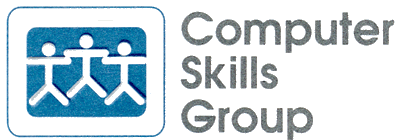

The Problem -
We all get them, often from well-meaning friends. They are emails asking us to spread the word about some important charity/virus/danger/etc. The reasons are always compelling. Here are three examples:
The first tells us that for every signature added to the bottom of the email, a well-know company has agreed to donate five dollars to a popular and well-known cause. Please, they ask, sign the email and forward it to everyone in our address book. To prove the validity, they challenge us to to verify the offer by calling the company, as they say they have. Of course, there is no offer by the company. The hoax ends up causing the company to get lots of phone calls and millions of nice people telling their friends to spread the scam even further. What a mess.
The second sends a dire warning about the "xyz virus" that our anti-virus programs are sure to miss but will definitely erase our hard disks. Yikes! They often mention that they are only forwarding this to us because they received it from a friend who is a "computer expert" and knows what he's doing. All very frightening. The only problem is, it's just a hoax.
The third is a real and recent example. This nasty little note advises us to check our computers to see if a particular file is found. The message says that this file is a virus which has infected our computer and should be removed before it does any damage. We look and, sure enough, it's there! Worse, the virus has probably been passed along to all addresses in our address book. Please pass this along to everyone in our address book, so they can fix their systems also. Good thing we found out about this. We send the email to everyone we know and start to "fix the problem". The detailed instructions tell us how to delete the file from both the folder it's in and the recycle bin. Our computer is now safe again . . . except that we just deleted a valid Windows file; a valid part of the operating system. Since we followed the instructions to the letter and dutifully deleted it from the recycle bin, we can't recover it either. Many of our friends are now busy doing the same thing! Nice, huh.
These are just three examples. I'm sorry to tell you, there are hundreds more.
So what can you do?
After all, what if it's real? You wouldn't want to be the one who failed to warn your friends, would you? Of course not. But, how do you know if it's real or not? It turns out that there are several web sites which will tell you whether the message is a hoax, or not. Before you take any action, just take two seconds to check.
Here's how to check it out -
Here are two sites which are free, legitimate, and up to date on hoax information. Click on these links and be sure to add them to your "Favorites" (if you use Internet Explorer) or your "Bookmarks" (if you use Netscape).
Go to either of those sites and type in a search word or two. If the search finds something, as it usually does, it will give you lots of information to help reassure you that your next step will be correct.
And here's a tip about searching -
Just think about the key part of the message. In my first example, you might search on company name and charity name. In the second example, the search would be for the virus name (xyz virus). In the third, you would type in the file name they are telling you to delete. You get the idea.
Check that email out before you take action, and you'll never be embarrassed having to contact your friends to tell them you just made them delete a valid Windows file!